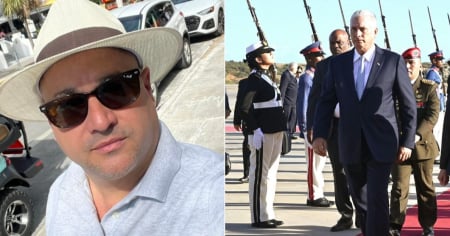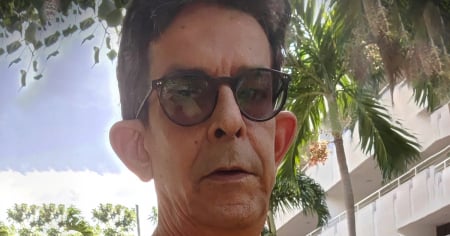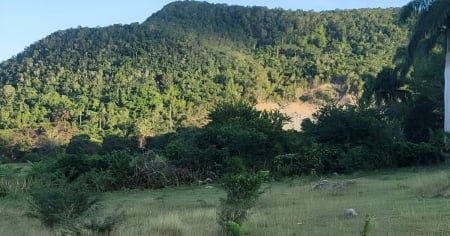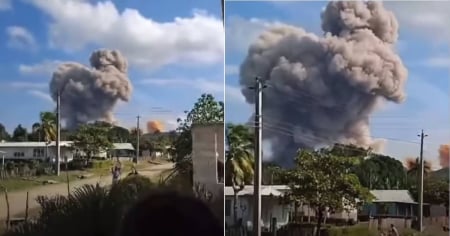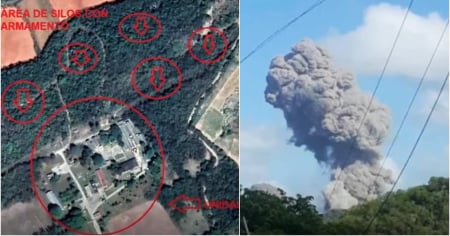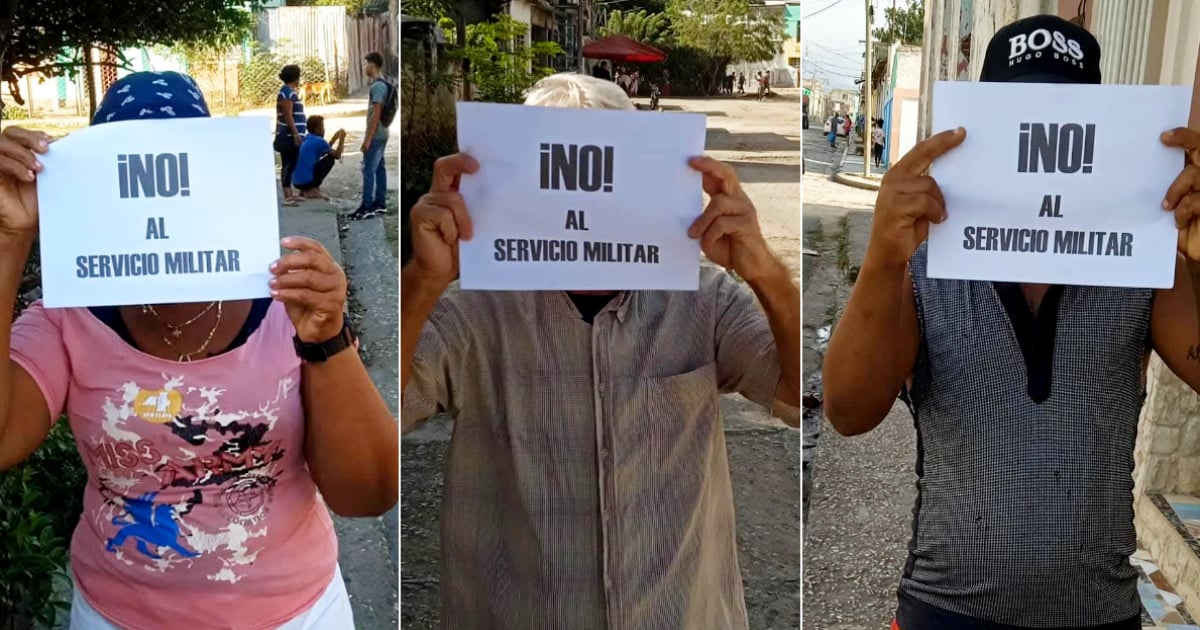
Related videos:
Amid the pain and indignation caused by the news of the disappearance of nine young soldiers and four military personnel in an ammunition depot in the province of Holguín, the campaign "No to Mandatory Military Service" has gained new momentum in Cuba.
This initiative, promoted by activists and organizations such as the Impacto Juvenil Republicano movement, demands the end of the Mandatory Military Service (SMO), which many consider an oppressive and dangerous system for Cuban youth.

The explosions that occurred at the Holguin munitions depot and the lack of transparency with which the authorities have reported the incident have led many citizens to fear that the “missing” may unfortunately be military personnel and recruits whose deaths the Cuban regime is attempting to conceal.
This situation of maximum tension and uncertainty has once again brought to the surface the feelings of parents and young people opposed to the forced recruitment of the Cuban Military Service, many of whom have joined this campaign on social media and in the streets of the island.
Protests have spread across provinces such as Holguín, Santiago de Cuba, Matanzas, and Artemisa, where dozens of young people took to the streets with banners and slogans like "Our youth deserve to live, not die!" and "No to Mandatory Military Service."
Despite the strong police presence, the protests reflect a growing discontent among the population, especially among the youth and their families.
Ramón Zamora Rodríguez, national spokesperson for the Republican Party of Cuba, highlighted on his social media the bravery of those who participated in the mobilizations, describing them as “an act of courage and civic commitment.”
The activist emphasized that this tragedy has highlighted an underlying issue: the SMO is not perceived as a tool for civic education, but rather as a mechanism of state control that jeopardizes the lives and futures of young Cubans.
"It is unacceptable that we continue to lose lives due to outdated and inhumane policies. We demand an end to compulsory military service and the implementation of policies that prioritize the education, development, and freedom of our youth," stated a spokesperson for the Republican Youth Impact movement.
Reactions on social media and solidarity
On platforms like Facebook, the campaign has resonated with activists and ordinary citizens.
Figures such as independent journalist Yosmany Mayeta Labrada have denounced the dangerous conditions and risks associated with the SMO, urging authorities to reconsider this system. In a post on Facebook, Mayeta pointed out that “hundreds of young people have died in recent years” while serving in the military.
The images shared on social media show the outrage and determination of the protesters, who aim to highlight an issue they see as a violation of youth rights. The movement also calls on the international community and human rights organizations to support the cause.
The tragic incident in Holguín has served as a catalyst for a debate that has been suppressed in Cuban society for years.
With the support of citizens, activists, and organizations such as Impacto Juvenil Republicano, the campaign "No to Mandatory Military Service" aims to put an end to a practice that, according to the protesters, has claimed too many lives and limits opportunities for young people in Cuba.
Growing rejection of Mandatory Military Service in Cuba
Mandatory Military Service (SMO) in Cuba has been a source of controversy for decades, and in recent years, public discontent towards this practice has grown significantly. This system, which primarily affects young people between the ages of 16 and 28, is criticized for the vulnerability and risks it poses to those who are subjected to it.
Various organizations and public figures have denounced the dangers and abuses that young people face during their service. In August 2024, Anisleydis Suria, the mother of a young man imprisoned for refusing to fulfill military service, publicly spoke out against the SMO, highlighting the difficult conditions that recruits are subjected to.
Furthermore, in January 2024, it was reported that young Cuban women who choose to pursue a Bachelor’s degree in Journalism will be required to complete a year of Mandatory Military Service first, according to the official press. This measure has raised concerns among many young women, who believe it could limit their access to higher education and affect their life plans.
The recent Decree 103/2024 tightened the sanctions for those who fail to report for military service. Fines for not registering for military service, missing summonses from the Military Committee, or being absent from training activities range from 2,500 to 7,000 Cuban pesos.
Furthermore, the parents or guardians of minors are responsible for their children's infractions. These measures have been interpreted as a government response to the growing social discontent towards the SMO.
Despite the complaints, the Cuban regime has insisted on denying that the service is truly "mandatory." In May 2022, during a session of the United Nations Committee on the Rights of the Child in Geneva, Yisel González García, an official from the Ministry of Foreign Affairs of Cuba, stated that military service on the island is voluntary.
According to his words, "citizens of both sexes who so wish and express it clearly can voluntarily join the Military Service."
However, this statement has been widely challenged, as the Cuban National Defense Law establishes the obligation of military service for male citizens.
According to Article 67 of this law, "male citizens, from January 1 of the year they turn seventeen until December 31 of the year they reach the age of twenty-eight, must complete Active Military Service for a period of two years."
Registration in the military registry is mandatory starting at the age of 16, and failure to comply with this obligation can result in legal penalties.
In parallel, the regime has defended the Social Service Military (SMO) as part of the "preparation for the defense of the country" against what it considers "external threats." However, this narrative has not managed to convince large segments of the population, especially the youth, who continue to demand alternatives that prioritize their development, education, and freedom.
Filed under:

